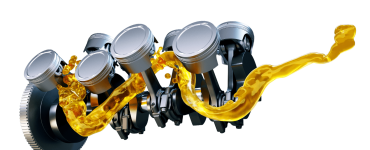Diesel Engine Oil Types: Your Guide to Optimal Performance
Understanding the right type of oil for your diesel engine is crucial for maintaining its health and performance. Diesel engine oil is designed to cope with the different demands of a diesel engine, including higher compression ratios, greater torque, and specific emission control requirements. Let’s dive into the world of diesel engine oil types to ensure your vehicle gets the care it deserves.

Key Takeaways
- Optimal Oil Types for Diesel Engines: Learn about the best oil choices for diesel engines.
- Synthetic vs. Conventional Oil: Understanding the pros and cons.
- Impact of Oil Choice on Engine Performance and Longevity: How oil types influence your engine’s health.
- Suitable Oil for High-Mileage Diesel Engines: Navigating oil selection for older diesel engines.
- Oil Change Intervals for Diesel Engines: When to change your diesel engine oil.
Understanding Diesel Engine Oil Types
Diesel engines require oils that can handle high temperatures and pressures. The main types of diesel engine oils include:
- Full Synthetic Oil: Offers superior performance in extreme temperatures, both hot and cold. It provides better lubrication, fuel efficiency, and longevity. Synthetic oils are particularly beneficial for modern diesel engines with advanced technology. Learn more about Synthetic vs. Conventional Oil.
- Synthetic Blend Oil: A mix of synthetic and conventional oils. It offers some benefits of full synthetics but at a lower cost. Suitable for moderate driving conditions.
- Conventional Oil: Best for older diesel engines or those with simple engine designs. It’s less expensive but doesn’t offer the same level of protection as synthetic oils.
- High-Mileage Oil: Specifically formulated for diesel engines with over 75,000 miles. These oils contain additives to protect aging engine seals and reduce oil consumption. Discover more about High Mileage Vehicle Oil Changes.
Choosing the Right Oil for Your Diesel Engine
| Engine Type | Recommended Oil Type |
|---|---|
| Modern Diesel Engines | Full Synthetic Oil |
| Mixed-Use Vehicles | Synthetic Blend Oil |
| Older Diesel Engines | Conventional Oil |
| High-Mileage Engines | High-Mileage Oil |
Synthetic vs. Conventional Oil: A Detailed Comparison
Synthetic Oil:
- Better at reducing engine wear.
- Improved fuel efficiency.
- Longer change intervals.
Conventional Oil:
- More affordable.
- Sufficient for older, less complex engines.
- Shorter change intervals.
Explore the detailed comparison at Synthetic vs. Conventional Oil.

The Importance of Regular Oil Changes
Regular oil changes are vital for maintaining the health of your diesel engine. The frequency of oil changes can depend on several factors:
- Driving Habits: More frequent changes may be needed for severe driving conditions. Read about the Impact of Driving Habits on Oil Change Intervals.
- Engine Age: Older engines might require more frequent oil changes.
- Oil Type: Synthetic oils generally allow for longer intervals between changes.
Conclusion
Choosing the right oil for your diesel engine is a key factor in ensuring its performance and longevity. Whether it’s a modern powerhouse or a high-mileage veteran, the correct oil type and regular changes will keep your diesel engine running smoothly.
Diesel Engine Oil Types: Q&A
| Question | Answer |
|---|---|
| What are the benefits of using full synthetic oil in diesel engines? | Full synthetic oil offers superior performance in extreme temperatures, enhances fuel efficiency, and prolongs engine life. |
| When should I use synthetic blend oil for my diesel engine? | Synthetic blend oil is ideal for mixed-use vehicles and those operating in moderate driving conditions. |
| Is conventional oil suitable for my diesel engine? | Conventional oil is best for older diesel engines or engines with simpler designs. |
| How often should I change oil in a high-mileage diesel engine? | High-mileage diesel engines may require more frequent oil changes to maintain engine health. |
| What type of oil is recommended for diesel engines in cold climates? | In cold climates, a full synthetic oil is often recommended due to its better flow at low temperatures. |
| How does my driving style affect my diesel engine’s oil change frequency? | Aggressive or heavy-duty driving requires more frequent oil changes due to increased engine strain. |
| Can I use oils designed for gasoline engines in my diesel engine? | Diesel engines have specific requirements; it’s crucial to use oils formulated for diesel engines. |




